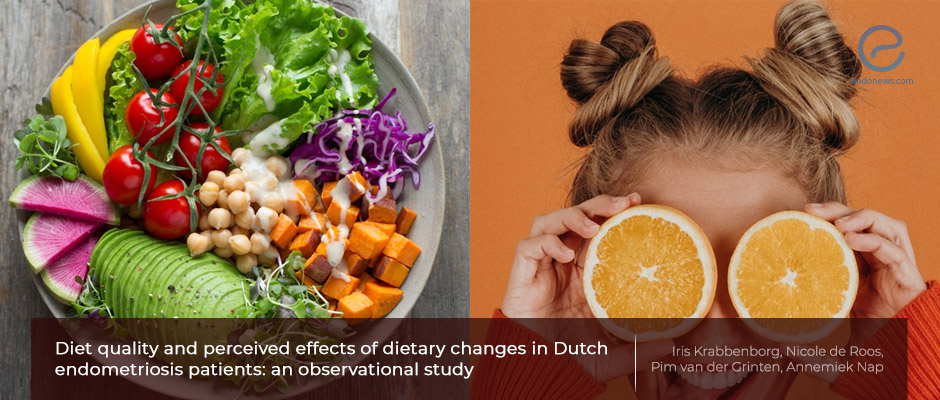Dietary adjustments do not increase the quality of life of women with endometriosis.
Dec 7, 2021
Even though dietary changes do not seem to increase patients’ quality of life, they lead to a perceived reduction in symptoms.
Key Points
Highlights:
- Dietary adjustments do not increase the quality of life of women with endometriosis.
- Women with the disease feel that adjustments improve their symptoms.
Importance:
- A better understanding of the effects of diet on endometriosis can allow dietary guidelines to be developed that can help manage the symptoms of the disease.
What's done here:
- This is an online explorative observational study on 157 women with endometriosis.
- Dutch Healthy Diet 2015 index and quality of life with the Endometriosis Health Profile-30 questionnaire are used for the evaluation.
Key results:
- Patients with endometriosis had a significantly lower diet quality.
- Diet users had a significantly higher total "Dutch Healthy Diet 2015" score than non-diet users.
- The quality of the diet did not correlate with the quality of life.
- The patients reported that specific dietary adjustments reduced their symptoms.
- Removing gluten, dairy, or soy, and adding vegetables to the diet showed the greatest perceived reductions in symptoms.
Limitations:
- Patients were recruited from two sites, one where they self-reported a diagnosis of endometriosis and one where the diagnosis could be checked from their files. This could cause bias.
- Participants were asked whether a specific dietary adjustment reduced or increased their symptoms but this question was not asked for diets.
- Because the data obtained in the study was self-reported by patients, they could have included socially desirable answers.
Lay Summary
Even though dietary changes do not seem to increase patients’ quality of life, they lead to a perceived reduction in symptoms.
No specific adjustment in the diet increases the quality of life of women with endometriosis, according to a new study by Dutch scientists. However, patients with the disease do feel that adjustments to their diet improve their symptoms.
“(…) more research is needed to gain evidence about the specific effects of nutrients on endometriosis symptoms,” wrote Iris Krabbenborg and the co-authors of the study that was published in the journal Reproductive BioMedicine Online.
In order to shed light on the current diet of women with endometriosis and better understand the perceived effects of dietary changes on disease symptoms, a team of researchers led by Annemiek Nap, Professor of reproductive medicine at Radboud University in Nijmegen, The Netherlands conducted an online explorative observational study.
In order to assess the diet quality of the participants, the team used the Dutch Healthy Diet 2015 index (DHD-15) and quality of life with the Endometriosis Health Profile-30 questionnaire (EHP-30).
A total of 157 women completed the questionnaires.
The results showed that women with endometriosis had a significantly lower DHD-15 score compared to a healthy reference group. This means that they had a lower diet quality. Many women with the disease made at least one change to their diet. Almost half of these (46.5%) were in the form of adopting a specific diet and more than half (56.1%) included using dietary supplements.
Women with endometriosis who used a specific diet had a significantly higher total Dutch Healthy Diet score. The quality of the diet did not correlate with women’s quality of life. However, women who reported having made many specific dietary adjustments reported reduced endometriosis pain-related symptoms.
“The removal of gluten, dairy or soy, as well as the addition of vegetables, showed the greatest perceived reductions of symptoms in participants,” the researchers reported.
They suggested that in the future, an interventional study where specific nutrients are added or removed from the diet of patients with endometriosis and compared with their usual diet could clarify their effects on endometriosis-related symptoms. This could help the development of clear dietary guidelines for women suffering from endometriosis.
Research Source: https://pubmed.ncbi.nlm.nih.gov/34493462/
diet endometriosis symptoms quality of life symptom management gluten soy vegetables pain

